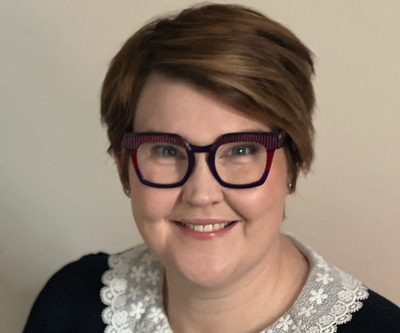- OT
- Industry
- Contact lenses
- “Reinvigorating” the reusable contact lens category
“Reinvigorating” the reusable contact lens category
Alcon has launched its new monthly reusable contact lens featuring a biomimetic design, and light filtering properties

14 February 2022
The Total30 lens uses a proprietary water gradient material and Celligent technology to mimic the natural features of the corneal surface in order to promote wettability and oxygen permeability.
The material transitions from a highly oxygen permeable lens at the core, to a non-silicone, hydrophilic polymer gel structure at the outer surface of the lens – meaning the lens transitions from 55% water at the core, to almost 100% at the outermost layer.
In addition, the lenses host class one UV blocking features and high energy visible light (HEVL) filtration – referring to light emitted from the sun, digital devices and certain lighting. This marks Alcon’s first monthly lens with HEVL filtration properties.
The opportunity for practices
The reusable segment
Last summer, OT spoke to Andy Pawson, Alcon Global Vision Care president and general manager, about the global reusable contact lens market, and why Alcon felt the segment needed innovation.
“Although this might not be quite the case in the UK, we still find nearly half of wearers are using a reusable lens,” he said.
Describing the reusable lens category as one which “definitely should not be ignored,” he pointed out that the segment supports patients “who have remained stable and loyal within the category over a number of years.”
Surveys by Alcon revealed that nearly 50% of contact lens wearers state that they experience contact lens discomfort.

A patient survey carried out across five countries in 2020 revealed that patients wanted to know more about contact lens technologies, Alcon said, with 75% open to talking about upgrading or updating their lenses, and 71% saying they would be willing to pay more for an innovative lens.
Speaking to OT following the event, Pigott said that the “age old problem of people dropping out of contact lenses” was less of a surprise in the reusable contact lens category, suggesting, “It’s a segment that really hasn’t seen any new innovation to reinvigorate the category for some time now.”
“Patients who are experiencing discomfort with their reusable lenses – studies show that they quite often feel like there is no other choice than potentially dropping out of contact lens wear,” he said, adding that “with Total30 we want to change that.”
Supporting wearers
The lenses have been specifically designed for a population of contact lens wearers that Alcon has defined as the ‘demanding needs patients.’Pigott explained that this segment of wearers “want the very best from their lenses. They may currently have issues with dryness or discomfort, or they may simply prefer brands that drive premium performance.”
Alongside the launch of the contact lens, Alcon has introduced a new Total30 care programme to support patients in their contact lens trial.
“This is designed to help contact lens wearers by providing a combination of educational content to support them on their journey with reusable lenses,” Pigott said. “The care programme is designed to complement support from the practice throughout the trial.”
Leaflets provided in practice direct contact lens trialists to register for the programme by scanning a QR code. The programme includes features that patient can interact with in stages throughout the trial to access mindfulness podcasts, tips for caring for their reusable contact lenses, and free-to-use playlists.
Speaking to OT about the lifestyle-approach of the new programme, Pigott explained that with the Total30, “we wanted to make a contact lens aftercare programme with a bit of a difference, because we’re looking at different sectors to some of the ones that we have done previously.”
Alcon expects that the majority of the new Total30 lens wearers will have worn reusable lenses previously, and so will have prior experience of the mode of lenses.
“We wanted to make sure we created a programme that isn’t solely focused on their contact lens wear, because chances are that they have been wearing lenses for a number of years,” Pigott said. “Our aim for the programme is to support practitioners in improving the contact lens wearer’s satisfaction during the trial period, and ultimately, to improve retention.”
The programme launches in early March, including a variety of emails and web pages to support the wearer experience, as well as a refresher on tips for successful wearing, and a reminder to return to their practice to complete the contact lens trial.
To support practices to promote the new lenses and engage patients, Alcon has launched a range of tools and resources, including in-practice branding material and social media assets.
Alcon will also be utilising social media to engage patients, including working with influencers who wear Total30 lenses.
The science of the lenses
The Total30 lenses build on technology and material used in the Dailies Total1 contact lenses, with Alcon’s new Celligent technology.

Rebecca Stoner, Alcon’s head of professional affairs, UK & Ireland, said: “The water gradient in Total30 is designed to accommodate the delicate tissues of the eye,” with the eye lid able to glide over the contact lens in the same way it would the cornea.
Taking inspiration from ocular biology, the contact lens has been designed to feature microscopic polymer nanofibers which behave the same way as microvilli – constantly moving to help spread the tear film evenly across the lens.
The lens chemistry also includes self-neutralising charges that deflect large molecules like bacteria and lipids, while the polymer nanofibers help to sweep them away.
“It’s a dynamic lens surface – it actually moves,” Stoner said.
Sharing topographical images of the lens surface, Stoner illustrated that the Total30 lens matches the topography of the corneal surface.
The neutral net charge of the lenses also minimises the absorption and release of preservatives, the company said, meaning the lens is compatible with all contact lens solutions designed for soft lenses.
Discussing the lens with OT, Stoner said that the Celligent technology of the Total30 can support the ‘wants’ of both the practitioner and patient from a lens. She explained: “Practitioners want to recommend a lens that is healthy, a patient wants a healthy eye, they both want a lens they can trust is going to help that, and that’s where the biomimicry of the Celligent technology plays a part.
“It’s giving the practitioners something new to recommend that’s meeting the need that they had before,” she continued, adding: “We needed innovation in that category. It feels like a really exciting time for us, our patients, and our practitioners.”
Talking tech
With Alcon’s biomimicry approach, encapsulated in what it has defined at ‘Celligent’ technology at the heart of the new lenses, OT asked the Alcon team for their tips on how practitioners can speak to patients about the technology
Stoner: “I think it’s about getting the patient to understand that we’ve taken the best bits of the cornea – the bits that keep the cornea lubricated, clean and fresh, and try to mimic that in the technology. If you use the word ‘biomimicry’ lots of people won’t understand, but everyone knows that their eyes don’t feel dry because your eyes naturally spread the tears, and we want a lens to do the same thing.”
Pigott: “In healthcare, I think people value the idea that we’re moving back towards being inspired by what we already see in nature. What’s easier to explain than: ‘We’ve just taken inspiration from what your eye already does really successfully, and put that into a contact lens to give you a better wearing experience’?”


Comments (0)
You must be logged in to join the discussion. Log in